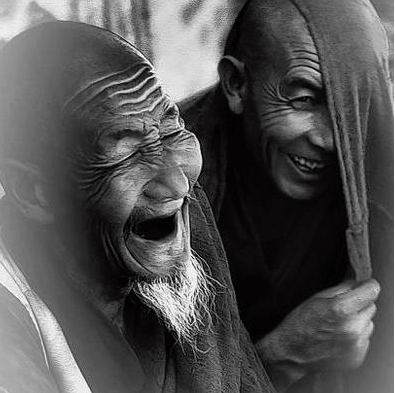
This revelation:
Do not scold anyone for
a mistake you might have made.
Do not discipline children until you
have grown up. Do not taunt or find fault
or call people names. Turn those
judgements inward. Own your
faults openly.

This revelation:
Do not scold anyone for
a mistake you might have made.
Do not discipline children until you
have grown up. Do not taunt or find fault
or call people names. Turn those
judgements inward. Own your
faults openly.
![]()
What is the
practice of repaying wrongs?
When receiving suffering, a practitioner
who cultivates the Path should think to himself:
“During countless ages past I have abandoned the root
and pursued the branches, flowing into the various states
of being, and giving rise to much rancor and hatred—the
transgression, the harm done, has been limitless.
Though I do not transgress now, this suffering
is a disaster left over from former lives —
the results of evil deeds have ripened.
This suffering is not something
given by gods or
humans.”
You should willingly
endure the suffering without anger
or complaint. The sutra says: “Encountering
suffering, one is not concerned. Why? Because one
is conscious of the basic root.” When this attitude toward
suffering is born, you are in accord with inner truth,
and even as you experience wrongs, you advance
on the Path. Thus it is called “the practice
of repaying wrongs”.
Records of the Teachers and Students of the Lanka

Be the same
all the way through:
quiet, still, at home. In the
absence of mind, all phenomena
can be seen for what they
are — empty. This is
freedom.

You
can now buy
Wei wu Wei Ching as part of a
five-app bundle of Taoist classics
for iPhone or iPad for less than
the cost of one hardcover
book.

Fleeting time
and the changes of matter
make all the kings of the earth but
transitory kings, ruling over transitory kingdoms;
this is because of their dependence upon their environment
instead of their imagination. But the kingship of the dervish,
independent of all external influences, based purely on
his mental perception and strengthened by the forces
of his will, is much truer and at once unlimited
and everlasting. Yet in the materialistic view
his kingdom would appear as nothing,
while in the spiritual conception
it is an immortal and
exquisite realm
of joy.

Through openness
and gentleness the correct
solution is reached.
Arriving
at the correct solution
to a difficult situation requires a
receptivity to inner truth. Unless we are
willing to put aside the strong emotions of
our egos and devote ourselves to discovering
what is right, there can be no hope of
progress at this time. Help only
comes when we invite it with
a sincere and innocent
attitude.
The
I Ching teaches
a simple but effective
method of influencing difficult
people and arduous situations. It advises
us first to lay aside our prejudices — our feelings
of being wounded, angry, or in the right —
and second to seek to understand the
positions of others and the lesson
that the Sage is teaching
us with the
situation.
Even
when another is
truly out of line, it is only by
accepting this and remaining balanced
that you make it possible for positive change
to occur. Gentleness and understanding
create in others an unconscious
willingness to
be led.
The
superior person
therefore avoids the use of anger
and force in trying times, knowing that they
only prolong conflict. It is far wiser to accept that
each experience we have is necessary for us to learn
something about ourselves and about the higher
laws of life. The greatest openings come when
we meet difficulty with acceptance,
gentleness, and a desire to
understand the lesson
underneath.
The I Ching, or Book of Changes
Hexagram 61, Chung Fu / Inner Truth
ebooks & apps of the Tao the Ching, I Ching,
Wei wu Wei Ching, Hua hu Ching, and
Art of War for iPad/Phone, Kindle,
You
can now buy
Tao te Ching as part of a
five-app bundle of Taoist classics
for iPhone or iPad for less than
the cost of one hardcover
book.
